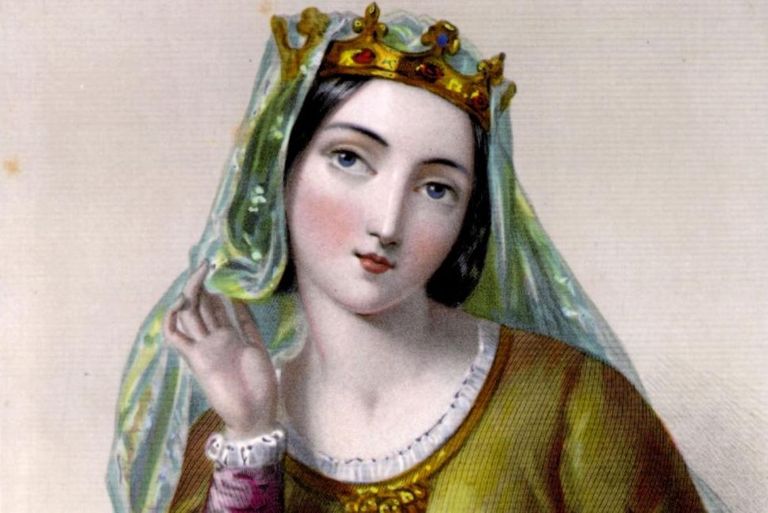
Isabella of Castile
Europe's First Great Queen
Giles Tremlett
(Bloomsbury)

A century before Elizabeth I of England, "the Virgin Queen," there was Isabella of Castile, who might have been dubbed "the Iron Queen." She showed what she was made of at the tender age of 18, when, defying convention, religious and royal authority, she insisted on selecting her own husband. She chose the dashing, if less than brilliant heir of the neighboring dynasty, Aragon.It was an inspired and consequential alliance, but it is clear who wore the breeches in this marriage although the independent monarch of Castile forged a comfortable partnership with her husband "which rested not just on trust and intimacy but also on mutual respect for their abilities." They became the model of a strong, enduring, ruthless (rather than enlightened) dynasty.
A shrewd politician and capable administrator, the Queen of Castile had to initially fight for her throne as a usurper of her underage niece at a time of civil unrest and division. Decades of ineffective rulers made it possible for the Crown of Castile to land on the unlikely head of young Isabella.
Ascending to the throne of Castile in 1474 after the relatively short reigns of her weak brother and half brother, she and Ferdinand were able to bring Castile and Aragon together under one crown, which was unprecedented. This essentially created the first true nation of Spain and spurred her ambition to unify all of Iberia, making it the model of a strong, enduring, and ruthless dynasty.
Tremlett's style is both scholarly and hugely readable, and he particularly excels in depicting Isabella's relationships with her husband, Ferdinand. The ins and outs of courtly life are revealed, and his description of the corruption and decadence of the cardinals and church hierarchy in Rome is especially revealing.
Pope Paul II, famously secretive and immensely wealthy, had died two weeks earlier. Some said he had stuffed himself with melon and died of indigestion. Others claimed he had a heart attack while being sodomized by one of his pageboys.
He organized depraved games in which prostitutes, Jews and donkeys received prizes, Youths had charged semi-naked in mud while the well-fed cardinals, whose party had dispatched thirty oxen, laughed uproariously.
According to the commentary of a Spanish archbishop after visiting Rome:
. . . now that all of Asia, Africa and a third of Europe follow the crescent moon (of Islam), when the Great Turk is attacking Catholics and daily putting us in great difficulty so that the fear now extends to inside the very halls of Rome, our exemplary men give themselves over to luxury and, as if they had no cares in the world, are busy with their scandalous outfits and given over a dissoluteness worthy of social condemnation.
And then there was the Spanish cardinal Rodrigo de Borgia, who would later become Pope Alexander VI. He proved to be a valuable ally to the Spanish monarchs. First he legitimized this union of two cousins with a papal bull. Later he had Isabella officially designated "the Catholic Queen" which, possibly, fueled her religious fervor and her firm conviction that everything she did was ordained by and in the service of God.
Isabella even played the soldier, a warrior who led armies, conducted sieges all the while professing herself but a weak woman employed in creating a "new sort of army," one that used artillery and infantry rather than knights and mounted followers. She succeeded in terrifying Spain's enemies by her mere presence.
On January 2, 1492, Ferdinand and Isabella, Queen of Castile, completed La Reconquista, the "Reconquest" - - - being, with the surrender of Granada - - - the last Muslim stronghold - - - the final Christian victory over Muslims in Spain.
The Dominican monk Tomas de Torquemada had the ear of the royal family; he was Isabella's confessor. Under his influence, Ferdinand and Isabella unleashed the Spanish Inquisition to maintain Catholic orthodoxy throughout their kingdoms.
Torquemada believed that allowing Muslims to live in Spain would corrupt Christian/Spanish society, and less than two months after the fall Granada, Ferdinand and Isabella signed a decree that signaled the end of the toleration of another religious group within their lands. They ordered that all of Spain's Jews had to either convert to Christianity or leave the country. All Jews had but four months to make their choices.
Tremlett's unsentimental portrait reveals an ambitious queen whose accomplishments of prescient religious reform, westward exploration, and empire-building far outshone those of her contemporary European monarchs.